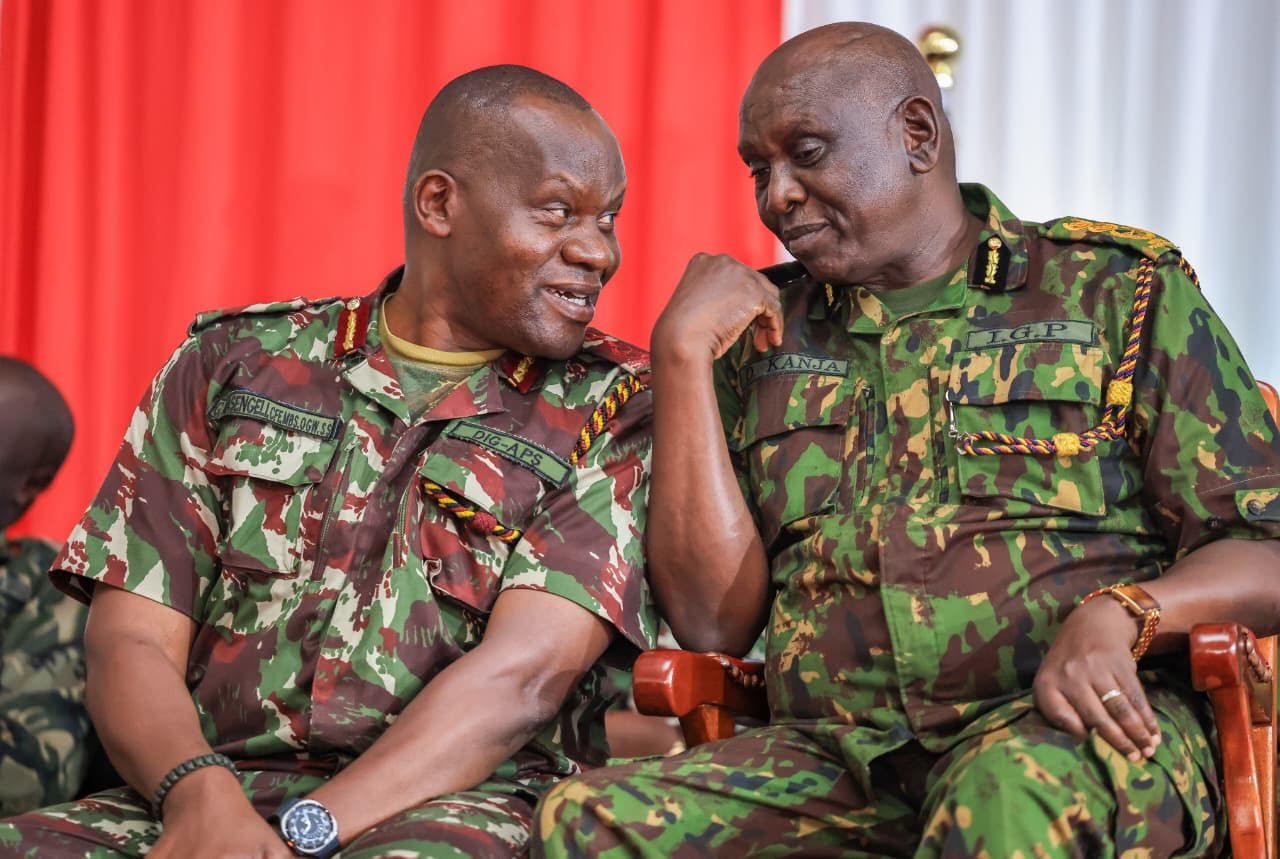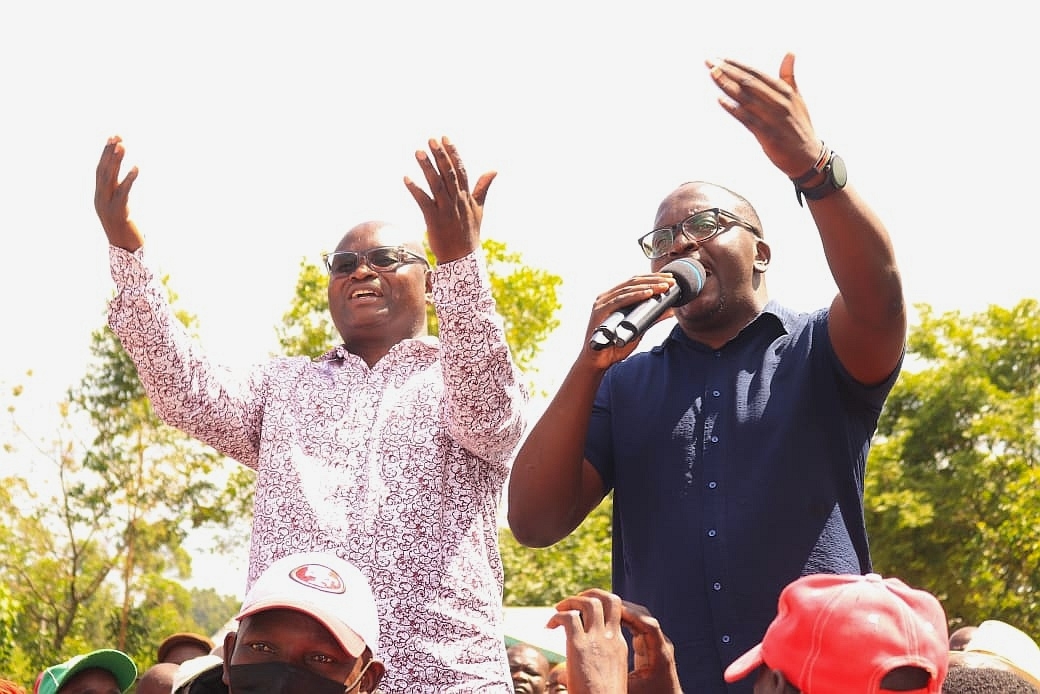

Top police commanders will meet in Ngong, Kajiado county on Wednesday, August 20, to discuss the security situation
in the country and pending reforms.
The team will converge
at the National Leadership Academy in Ngong for a discussion on the state of
security and the proposed changes in the service.
The Inspector General
of the National Police Service Douglas Kanja will address the team.
Those invited include
regional commanders and directors from across the National Police Service.
There is a general
feeling that security has been contained in many places in the country due to
operations mounted.
Few places, including
Meru and Embu are experiencing sporadic crimes amid calls to address the trend,
officials said, adding some of the incidents are politically motivated.
The meeting comes amid claims that major pending reforms in the service hang on the shoulders of the police commanders and the political class, who are supposed to implement them for better delivery of service.
Lack of finances threatens the whole plan. The
issue has been raised in many meetings between Interior Cabinet Secretary
Kipchumba Murkomen and security commanders in various regions.
For instance, many officers complain of stagnation in one rank for many years. Murkomen has since ordered all constables aged 50 and above be promoted to the next rank.
The proposals are contained in a report by the National Taskforce on Improvement of Terms and Conditions of Service and other Reforms for Members of the National Police Service, National Youth Service, and Kenya Prisons Service.
Kanja had sent an internal memo to the police in July asking them to embrace the proposed reforms.
President William Ruto said the government needs Sh106 billion to implement far-reaching reforms.
Ruto launched the Strategic Framework for Implementation of reforms in the services. The Framework provides an integrated approach to reform priorities in a strategic and coordinated manner to ensure coherence among reform institutions.
From all the police reform initiatives, this is the first that has a Strategic Framework for implementation developed by the relevant institutions and how it is handled will determine much.
Out of the money, Sh22 billion will finance improvement in compensation package for officers, while Sh37 billion will go to the upgrading of the hardware and welfare reforms and Sh45 billion is required to implement modernisation of the services.
Ruto said the National Treasury will provided part of the funds while the rest will be catered for by investors.
"We appreciate the considerable financial implications of the full implementation of the changes prescribed by the Maraga taskforce. It is estimated that it will cost Sh106 billion to full actualise these recommendations," he said.
Ruto revealed that the government had procured 1,000 e-vehicles for the police officers to enhance e-mobility across the country.
He added that plans were also in place to construct 32,000 houses for the security officers, highlighting how some law enforcement officers often live in deplorable conditions.
"Some of our officers live in houses that are not different from the prisons themselves. That cannot be the case. That's why we extended the housing program to include institutional houses for our military, police, NYS and prisons," he said.
The report identified specific issues such as political interference in NPS, corruption in employment and promotions, police training curriculum, an inadequate National Police Service Commission (NPSC), the role of the Cabinet Secretary responsible for National Security and the structure of the Internal Affairs Unit (IAU) in the police.
While presenting the report, Maraga called for political goodwill in the implementation of the recommendations, saying similar proposals were previously made but never implemented.
"It also became clear that the reform recommendations stand little chance of being implemented if the leadership issues are not addressed," Maraga said.
Prioritising transparency, professionalism, and community engagement have the potential to not only reshape the police service but also rebuild trust between law enforcement agencies and the people they serve.
The framework developed in consultation with stakeholders from has identified four key areas of reform.
They are leaders in the three services, oversight and accountability, institutional capacity development and human resource management and development, as well as operational preparedness and logistical capability.
The task force made a total of 598 specific areas of reform, and most of them are on police, which Kanja has to push through.
They include 271 recommendations on the police service, 210 on the NYS, and 117 on the prison service.
The team implementing the reforms has so far categorised them into four broad areas.
Of the 598 recommendations, the National
Inter-Agency Steering Committee identified 291 that could be implemented
through administrative action without financial implication.


















![[PHOTOS] How ODM@20 dinner went down](/_next/image?url=https%3A%2F%2Fcdn.radioafrica.digital%2Fimage%2F2025%2F11%2F99d04439-7d94-4ec5-8e18-899441a55b21.jpg&w=3840&q=100)
